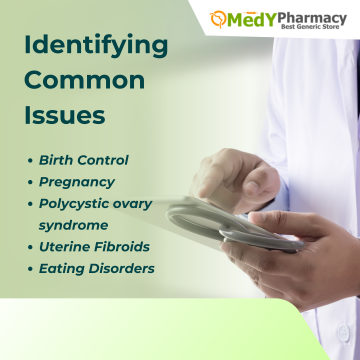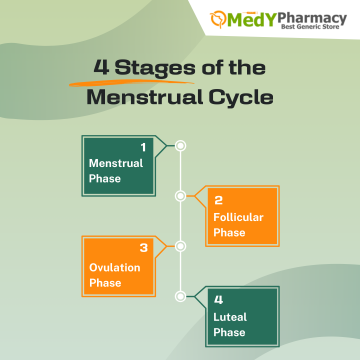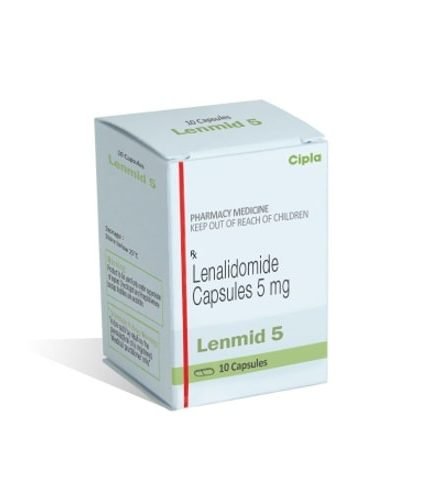Introduction:
All women go through difficult periods when they have to endure the pain of menstruation. Menstrual discomfort is often highly uncomfortable for women.
Women have a difficult time dealing with menstruation. Some women are unable to complete their household activities due to severe bleeding. This is a necessary part of life for all women. It assists women in reproducing the birth of a baby.
This is required for reproduction to occur. The cycle appears to be somewhat intricate. This is controlled by a variety of hormones and glands. Every woman’s menstrual cycle consists of four stages. This is the first stage, followed by follicular stage, ovulation, and luteal stage. Some women have heavy menstrual cycles. In contrast, other women have light periods.
Many women have heavy or light periods as a result of uterine issues. A woman can easily conceive if she completes the four stages of the menstrual cycle. Women’s conception is determined by their menstrual cycle.
It is vital to obtain a health examination regularly to determine the state of your reproductive system. A routine health checkup might help women avoid menstrual difficulties.
What Is The Menstrual Cycle?
This is a natural but complex series of changes that your body experiences each month.
A menstrual period lasts 28 days on average, but each individual’s cycle varies. Teenagers, for example, may have 45-day cycles, but those in their 20s and 30s may have cycles ranging from 21 to 38 days.
The duration of each phase varies and changes over time.
Limiting sugar, alcohol, and caffeine consumption during your cycle can help improve hormonal equilibrium. Furthermore, limiting these things can help lessen cramping, as they have been shown to cause cramps during menstruation.
The word “menstrual cycle” refers to the sequence of events that occur in your body each month as it prepares for the potential of conception. Your menstrual cycle runs from the first day of your menstrual period to the first day of your next menstrual period. Each person’s cycle differs slightly, but the process is the same.
Peek Into Menstruation
The cycle prepares your body to conceive. When you’re not pregnant, your hormones signal the uterus to lose the lining. If the uterus does not shed its lining, you will not be pregnant. Getting your period is necessary to keep the pregnancy process going normally. When you have your period, the menstrual cycle restarts.
This is defined as the period that begins on the first day and ends on the first day of your following period. A normal menstrual cycle lasts 28 or 29 days. It is vital to remember that every woman’s monthly cycle is unique.
Teenagers may experience a monthly cycle of 45 days. Women in their early twenties and thirties have a 38-day monthly cycle.
Menarche is the term used to describe the beginning of your period. The average starting age is 12 or 13. Some women begin their periods at the age of 9 or 16. Menopause refers to the final menstrual cycle. Some women reach menopause at the age of 50. Others experience menopause at the age of 60.
Common Menstrual Issues
Many women suffer from common menstruation difficulties, such as premenstrual syndrome. It is a hormonal event that causes menstruation with associated adverse effects. It consists of weariness, headache, fluid retention, and irritability. Dietary adjustments and exercise are possible treatment options.
Dysmenorrhea is another type of menstruation disorder. It is a painful time in which the uterus contracts more than necessary. Dysmenorrhea causes women to bleed heavily. Oral contraceptive pills and pain relievers are both choices for treatment.
Menorrhagia is a type of severe menstrual bleeding. If this menstrual problem is not treated, it might lead to anemia. Women’s heavy bleeding can be controlled with medicines.
Identifying Common Issues
Every menstrual cycle differs. Some people have their periods at the same time every month. Others exhibit greater irregularity.
Your cycle may also fluctuate at different stages of your life. For example, when you move closer to menopause, it may become erratic.
Tracking your periods is one technique to determine whether you have any problems with your menstrual cycle. Keep track of any variations in the amount or number of days you bleed, as well as whether you experience spotting between periods.

- Birth Control
The birth control pill may shorten and lighten your periods. Some medicines prevent you from having a period.
- Pregnancy
Your periods should cease during pregnancy. Missed periods are one of the most evident indications of pregnancy.
- Polycystic ovary syndrome
This hormonal imbalance prevents an egg from growing properly in the ovaries. PCOS causes menstrual irregularities and missing periods.
- Uterine Fibroids
Noncancerous uterine growths might cause your periods to be longer and heavier than usual.
- Eating Disorders
Here are some symptoms of a problem with your menstrual cycle:
- You’ve skipped periods or stopped having them entirely.
- You have irregular periods.
- Your periods are either less than 21 or more than 35 days apart.
- You bleed between periods (more heavily than spotting).
- If you are experiencing these or other problems with your menstrual cycle or periods, consult a healthcare expert.
At What Age Does Menstruation Usually Start?
Menstruation begins at the average age of twelve. However, you can start menstruating as early as 8 years old or as late as 16 years old. Most people begin menstruating within a few years of developing their breasts and pubic hair.
This stops when people reach menopause, which occurs at the age of 51. You cease generating eggs during menopause. If you haven’t had a period in a year, you’ve reached menopause.
The Importance of Tracking Your Menstrual Cycle
Tracking your menstrual cycle can help you manage your reproductive health and overall well-being. The following are all reasons why you should monitor your menstrual cycle.
- Predict Your Period
Tracking your cycle allows you to anticipate when you will get your next period.
- Understand Your Body
Keeping track might help you spot any anomalies or changes that require attention. Consider if your periods suddenly become irregular or unpleasant.
- Know Your Fertile Days
If you’re considering establishing a family or avoiding pregnancy, following your menstrual cycle might help you pinpoint your most fertile days. However, it is important to understand that pregnancy can occur at any moment of your menstrual cycle.
- Manage PMS symptoms
Those days when your emotions are wildly fluctuating. By charting your cycle, you can predict mood swings, cramps, and other PMS symptoms, allowing you to prepare and care for yourself more effectively.
- Identify Patterns
Patterns in your cycle will emerge over time. Throughout their cycle, some people notice fluctuations in energy, mood, or appetites. Knowing these patterns can help you arrange activities, self-care, and exercise at the most convenient times for you.
Whether you use period-tracking software, a calendar, or a journal, recording your menstrual cycle can provide you with valuable information about your body and health.
Everyone’s cycle is unique; it may take months or even years to identify a definite pattern. Accept this process of discovering your cycle, and remember that this is a lovely and natural phenomenon that represents your reproductive health!
Why Should You Keep Track Of Your Menstrual Cycle?
At the most basic level, tracking your menstrual cycle can help you prepare for your periods. However, tracking your menstrual cycle can also be beneficial in a variety of other ways.
For example, knowing what is generating the cyclical symptoms will help you understand and cope with them more effectively. Depending on the stage of your menstrual cycle you are in, you may have a different experience with sexual intercourse, feel bloated, suffer from migraines, develop acne, have digestive problems, etc. In reality, many women have stated that the menstrual cycle has an impact on their mental health.
You can keep track of your period dates in a journal or on a calendar to help you predict and plan for your next period. Technology has made it much easier to track your menstrual cycle or periods. You can accomplish this by simply installing a period tracking app for your smartphone.
How Can You Figure Out Your Menstrual Cycle?
This is a highly individual experience. Each woman has a unique experience, which is why calculating her period is beneficial. To calculate your menstrual cycle, begin with the first day of your period and count up to the final day before your next period. However, keep in mind that menstrual cycles might change for a variety of reasons.
It is crucial to remember, however, that pre-period spotting does not constitute the first day of your period. When you begin to bleed regularly, your period starts.
Four Stages of the Menstrual Cycle
During each menstrual cycle, the ovaries produce and release one egg. The lining of the uterus grows. If no pregnancy occurs, the uterine lining sheds during a menstrual cycle. The cycle then restarts.

- Menstrual Phase
- Follicular Phase
- Ovulation Phase
- Luteal Phase
Every woman goes through four stages of her menstrual cycle, which are outlined here.
- Menstrual Phase
The period is sometimes referred to as menstruation. The uterine lining pours out and sheds from the vagina during menstruation. Your period is made up of mucus, blood, and some cells lost from the lining of your uterus.
Most women have periods for three to seven days. Many women use sanitary pads or tampons. In addition, some women use menstruation cups or period underwear. It is important to change your sanitary napkins and tampons regularly. Menstrual cups should be changed every 8-12 hours.
This stage occurs when an egg from the previous cycle is not fertilized. Because no pregnancy has occurred, estrogen and progesterone levels decrease.
- Cramps
- Tender Breasts
- Bloating
- Mood Swings
- Irritability
- Headaches
- Tiredness
- Low Back Pain
- Follicular Phase
The follicular phase begins on the first day of your menstruation and concludes when you ovulate.
It begins when the hypothalamus instructs your pituitary gland to release follicle-stimulating hormone. This hormone causes your ovaries to generate between 5 to 20 tiny sacs known as follicles. Each follicle has an immature egg.
Only the healthiest eggs will finally mature. The rest of the follicles will be reabsorbed by your body.
When a follicle matures, an increase in estrogen occurs, thickening the uterine lining. This generates a nutrient-rich environment in which an embryo can thrive.
The follicular phase typically lasts about 16 days. It might last between 11 and 27 days, depending on your cycle.
The follicular phase begins on the first day of your cycle and lasts between 13 and 14 days. It finishes when your ovulation day is over. Your brain’s pituitary gland secretes a hormone. This hormone induces the development of follicles on the ovary’s surface.
Only one follicle matures and produces one egg. This occurs beginning on the tenth day of your menstruation cycle. As the uterus prepares for fertilization, its lining thickens.
- Ovulation Phase
As estrogen levels rise throughout the follicular period, your pituitary gland secretes luteinizing hormone. This is how the ovulation process begins.
Your ovary produces a mature egg during ovulation. The egg travels through the fallopian tube to the uterus, where it is fertilized by sperm.
The ovulation phase is the period of your menstrual cycle when you become pregnant. These symptoms could suggest that you’re ovulating.
- A modest increase in basal body temperature
- A thicker discharge with an egg-white-like texture
If you have a 28-day cycle, ovulation happens around day 14—right in the middle of your menstruation. If an egg is not fertilized, it will die or dissolve after one day.
A mature egg is discharged from the ovary and travels through the fallopian tube and ultimately into the uterus.
Most women conceive three days after ovulation. The egg will live for 24 hours after exiting the ovary. If the sperm reaches the egg at this stage, there is a high possibility of pregnancy.
- Luteal Phase
After the follicle discharges its egg, it transforms into the corpus luteum. This structure makes hormones, principally progesterone, and some estrogen. The increased hormone levels keep your uterine lining thick and ready for a fertilized egg to implant.
If you become pregnant, your body will generate human chorionic gonadotropin. It helps to keep the corpus luteum intact and the uterine lining thick.
When you do not conceive, the corpus luteum decreases and is reabsorbed. This produces a reduction in estrogen and progesterone levels, which triggers the commencement of your menstruation. The uterine lining will shed throughout your period.
- Bloating
- Breast Swelling, Pain
- Tenderness
- Mood Changes
- Headache
- Weight Gain
- Changes in Sexual Desire
- Food Cravings
- Trouble Sleeping
Following ovulation, cells in the ovary are released. Progesterone hormone and a tiny quantity of estrogen are secreted during this time. These two hormones help to keep the uterine lining thicker.
If the fertilized egg is assaulted in the uterine lining, the cells continue to produce progesterone. As a result, it maintains the uterine lining’s thickness. If there is no pregnancy, the ovary’s cells die and progesterone levels drop. As a result, you will experience a time.
What Causes Anomalies in the Menstrual Cycle?
If you closely monitor your menstrual cycle, you will be able to identify anomalies and atypical periods promptly.
While a single skipped, delayed, or early period should not cause concern, if your menstrual cycle is routinely irregular, you should see a doctor.
- Pregnancy
If you have been sexually active and have missed your period, pregnancy could be the cause. However, simply missing a period does not indicate that you are pregnant. Keep an eye out for other early pregnancy symptoms such as sore breasts, excessive exhaustion, morning sickness, nausea, and so on, and use a home pregnancy test to rule out the possibility.
- Hormonal imbalance
Several studies have linked menstrual abnormalities to hormonal problems such as hyperthyroidism or hypothyroidism. If your monthly irregularities are accompanied by unexpected weight loss or increase, hair loss, or irritable bowel syndrome, you should consult your doctor.
- Polycystic ovary syndrome
The most prevalent symptom of Polycystic Ovary Syndrome, or PCOS, is irregular periods. Other signs to look for include weight gain, excessive hair loss, the growth of excess facial or body hair, and so on.
- Stress
Stress and worry can disrupt your menstrual cycle, resulting in abnormalities, period delays, or even shorter menstrual cycles. Menstrual abnormalities are more likely in women under stress.
How Can You Avoid Menstrual Irregularities?
Yoga, effective stress management, regular exercise, and proper nutrition are all science-backed approaches that can help you regulate your menstrual cycle. However, if the symptoms persist, it is best to consult with your doctor and develop a treatment plan that properly addresses the underlying source of your condition.
Where May You Seek Treatment For Menstrual Irregularities?
Monitoring your menstrual cycle will assist you in identifying the early warning symptoms. You can then make an appointment with your doctor, who may advise you on lifestyle modifications, medication to regulate your cycle or a mix of the two. It is critical not to dismiss warning signs and suffer in quiet. Whatever the cause of your menstrual cycle irregularity, your gynecologist is competent to assist you in finding a solution.
How Can I Keep Track Of My Period?
Tracking your menstrual cycle and identifying ovulation has numerous advantages. Knowing where you are in your cycle can allow you to predict your period and prepare for PMS and period cramps.
- Identifying the beginning day of each period on a calendar
- Use a menstrual cycle chart to monitor the first and last days of your period.
- Cycle tracking apps that record the earliest and last days of your cycle, as well as symptoms
- Tracking your basal body temperature can help you determine when you’re going to ovulate.
- Cervical mucus monitoring
Our birth control app is used in conjunction with a basal body temperature to track your cycle and determine your daily fertility. Most other cycle-tracking programs rely solely on calendar days, which reduces accuracy. Furthermore, this is the only app of its kind that has been approved by the FDA for use as birth control.
Why Does A Menstrual Period Shorten or Lengthen?
Menstrual cycles do not normally follow a set schedule, and irregular periods are common. They may appear at the same time each month, or they may vary by a few days. For example, one period could last four days, while another could last seven. This is extremely frequent and should not raise any concerns.
However, if you are concerned or wondering why this is the case, there are a few factors that can influence your cycle.
Hormonal birth control can make your periods shorter and lighter. Some women who take a progestogen-only pill (POP) with desogestrel may not have periods at all because they do not ovulate.
When Should You See A Gynecologist?
If you are concerned about your period, discuss it with your doctor. If your menstrual cycle changes or you have longer periods, you should communicate and contact your doctor. If your period lasts longer than eight days, see your doctor.
Tell your gynecologist if you start having your period before 21 days. If you haven’t had your period in 35 days, see your doctor. If you bleed during sexual passion or your period, contact your doctor.
Infertility is a serious problem these days, and because the menstrual cycle is how your body prepares for conception, your cycle should be evaluated if you’re having difficulty getting pregnant.
Every woman should understand her menstrual cycle. Every woman should be well aware of her menstrual cycle. If you observe any strange changes in your period, consult your doctor.
In rare circumstances, an irregular cycle may indicate a medical issue that requires treatment.
This gives crucial information on your medypharmacy and reproductive health.
























